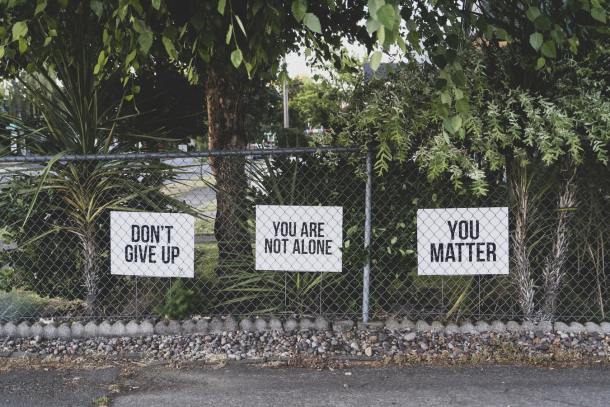

(Credit: Unsplash)
This article was exclusively written for The European Sting by Ms. Rariane Bernardino Marani and Ana Flávia Cury Ivantes, two fourth-year medical students at a private university in southern Brazil. They are affiliated to the International Federation of Medical Students Associations (IFMSA), cordial partner of The Sting. The opinions expressed in this piece belong strictly to the writers and do not necessarily reflect IFMSA’s view on the topic, nor The European Sting’s one.
The World Health Organization (WHO) defined the coronavirus outbreak as a pandemic in March 2020. The first case recorded was in December 2019 in China, which quickly spread to other countries and continents, taking them to adopt measures to treat complications, epidemiological control and social isolation.1
With the new scenario established, there were changes in the lifestyle and routine of thousands of people, reflecting on their health. With regard to mental health, this reflection is seen in the main current Google searches, in which between April 12 and April 19 the main searches were: ”What should I do in quarantine? ” and ”Shortness of breath, what should I do?”2. In addition, between the months of May and April 2020 there was a sudden increase in consultations such as: ”anxiety causes shortness of breath?”, ”Anxiety in quarantine” ”guided meditation for anxiety” ”How is the shortness of breath of anxiety and COVID-19”, demonstrating a greater concern both in how to keep the time occupied during social isolation, and searches related to anxiety and symptoms that are associated with both it and COVID-193.
To keep mental health, self-care is important and for this there are four fundamental pillars: physical (maintenance of restful sleep, physical activity, adequate nutrition and rest), emotional (stress management, building self-esteem, psychotherapy), social (setting limits, support networks and fair weather) and existential (spirituality, meditation, prayer, philosophy and nature).
When thinking about physical care, it is important to maintain sleep between six to eight hours a day at night, respecting the night time to preserve the sleep-wake cycle essential for hormonal maintenance and reduction of anxiety levels; the practice of physical activity, ranging from walking around the house, to dancing; food, in which keeping it balanced and regulated helps to maintain the immune and gastrointestinal systems; and rest, since home work can be intensified.
On the emotional side, the management of stress includes practices such as taking a specific time dedicated only to concerns and, after this time, dedicating to other things activities, avoiding emotional exhaustion; It is also important to build self-esteem and psychotherapy.
In the social sphere, it is important to set limits for both work and leisure moments, in order to hold a healthy routine, support networks and fair time, as there is a tendency to maximize time at home and subsequently there is a frustration for not carrying out all the tasks set up.
In the existential pillar, spirituality, meditation, prayer, philosophy and nature, are practices that seek to regulate body and mind, improve sleep quality, increase concentration, among others. They are the basis of our emotions, decisions and thoughts. That is, our ways of seeing, feeling, thinking and acting within social isolation, with its countless challenges, anxieties and fears.
Therefore, in order to reduce complaints related to mental health during a period of Pandemic, it is important to institute the measures mentioned above, contributing to a healthier quality of life and a successful coping with illness.
References
- Portal PubMed [https://pebmed.com.br/]. Coronavírus: tudo o que você precisa saber sobre a nova pandemia [accessed on 19 april 2020]. Available in:
- Google Trends [https://trends.google.com.br/trends/?geo=BR] Coronavírus [accessed on 19 april 2020]. Available in:
- Google Trends [https://trends.google.com.br/trends/?geo=BR] Ansiedade [accessed on 19 april 2020]. Available in:
About the author
Rariane Bernardino Marani and Ana Flávia Cury Ivantes are fourth-year medical students at a private university in southern Brazil. Ana is a member of the academic leagues in Gastroenterology, Maternal and Child Health and the Oncology and Hematology League, while Rariane is part of the Maternal and Child Health Academic League and the Oncology and Hematology League. Both academics believe that the primary principle for the training of a good doctor is the development of scientific research since graduation, which promotes new discoveries for health and minimizes its challenges.